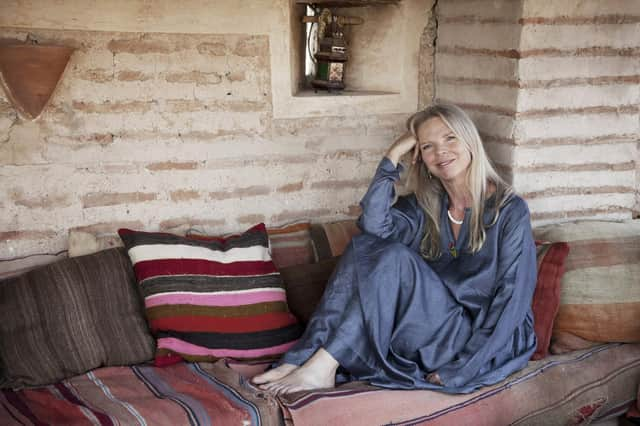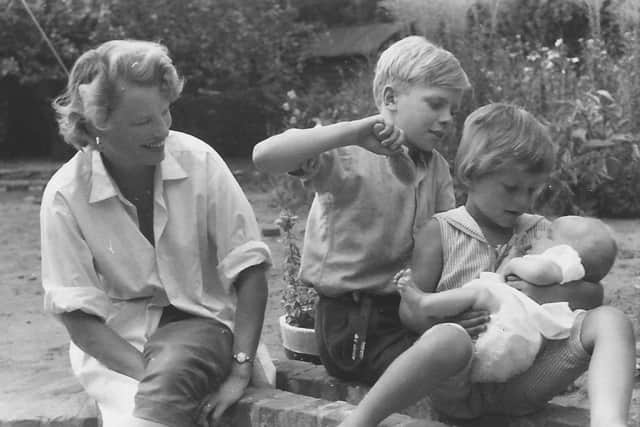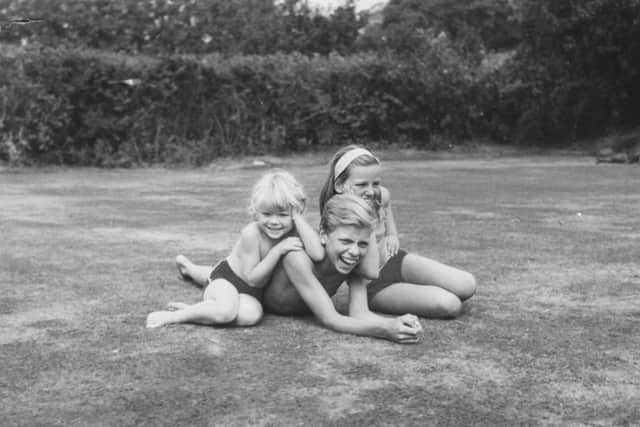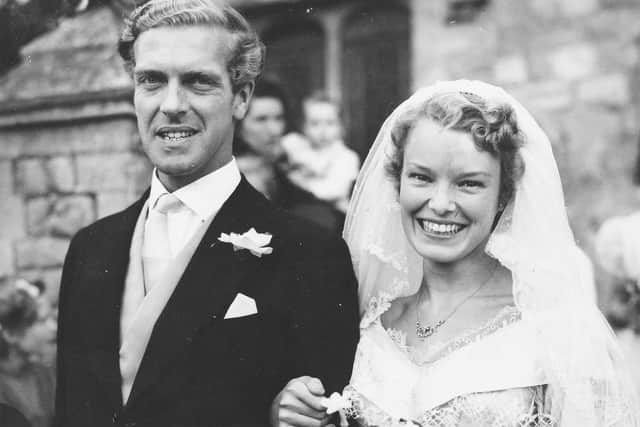New Branson family memoir is full of love, pain and happiness


‘I rather enjoy it,’ she says as she launches a memoir of her life and family.
‘Otherwise I don’t think people would pick up on the book at all. I grew up having him as my big brother and it has been wonderful.
Advertisement
Hide AdAdvertisement
Hide Ad‘I have a hotel in Morocco and I don’t think there has been a single major article about it which hasn’t called me Richard Branson’s sister. It is almost like part of my name.’


The book is called One Hundred Summers, and in it Vanessa, who lives in Chichester, talks about love, pain, abortion, betrayal, near-death experiences and much more.
‘Writing it has been nothing but a positive experience’, says Vanessa.
‘It is not ghost-written kiss-and-tell stories. It is a really honest account of a life full of terrible things and wonderful opportunities. And it ends on an optimistic note.’
Advertisement
Hide AdAdvertisement
Hide AdThe book offers a true account of her extraordinary family, with astonishing revelations including the painful breakdown of her marriage and also tales of brother Richard’s first attempts at entrepreneurialism in his teens.


Vanessa also talks about the early years at Necker Island, Richard’s Caribbean home, and how she too bought an island, Eilean Shona in Scotland, and has transformed it into a superior B&B.
She also tells how she developed El Fenn, a once crumbling palace and now landmark hotel in Marrakech; and how she opened her own gallery and became the president and founder of the Arts in Marrakech (AiM) Festival, now known as the Marrakech Biennale.
‘When I was writing it, I was with a girlfriend who said to me “When we are 80 and we are sitting on our park bench we are not going to look back and say thank goodness we behaved so well.”
Advertisement
Hide AdAdvertisement
Hide Ad‘The fun memories are the ones where we… strayed from good taste. Let me put it like that.’


The legacy of two world wars on Vanessa’s parents and grandparents is also documented, a trauma shared by generations of Britons: ‘Writing this wasn’t pre-planned.
‘It was a confluence of events, a combination of things. I was just getting to be 60 which is quite an interesting time in your life when the next generation is just bubbling up below and the last generation is starting to die out.
‘It is a time of reflection.
‘And I was very struck by the Brexit debate and Donald Trump getting elected.
Advertisement
Hide AdAdvertisement
Hide Ad‘I started writing this at the time of his inauguration.Trump is so much the polar opposite of everything that my father stood for that I just started to write about my father.
‘He died in 2011 and I wanted to honour that generation of remarkable people.
‘He was born in 1918 just as World War One was coming to an end, just as women were starting to get the vote. I started writing in 2017 and I realised it was coming up for exactly 100 years since his birth.’
Through writing the book,Vanessa explored what it was that made her father and his generation so special: ‘They had an extraordinary resilience, an extraordinary playfulness and extraordinary sense of duty.
‘They were brought up to believe in duty.
Advertisement
Hide AdAdvertisement
Hide Ad‘They had this sense that you give back, that you are not entitled to anything, that you have to give back.
‘They were grammar school boys, and they were privileged that they had this wonderful heritage of education, but they had this great sense of civic duty.
‘And I still think that exists more than you would think today.
‘The focus of the media is that we are all going to hell in a handcart, but for most of our country and other countries that I am aware of, there is still a good sense of community and belonging.’
Advertisement
Hide AdAdvertisement
Hide AdVanessa calls her book a memoir rather than an autobiography: ‘Autobiographies are for famous people.
‘Memoirs are more that feeling of wanting to capture something, that if you draw your fingers through the sediment of the river of your life, you see the bubbles come up.
‘It is about capturing that.’
In writing it, one memory led to another: ‘And it really surprised me how much came back.
‘Everything just bubbled up.’
Richard is delighted with the book.
He says: ‘Ness captured our childhood years, those years of innocence and joyous eccentricity with an unerring voice.
Advertisement
Hide AdAdvertisement
Hide Ad‘She captured the years that followed too and, ahem, let’s be honest here, I’m not sure we can describe those as being quite so innocent!
‘A reviewer of my autobiography once wrote of it that it was “a kiss and tell, warts and all story written by the author himself.’
‘In this enthralling book, Vanessa has capped that many times.
‘It makes for a gripping read. She’s led an extraordinary life and just happens to be one of the most creative people I know. And I’m only a little biased.’
One Hundred Summers is out now.